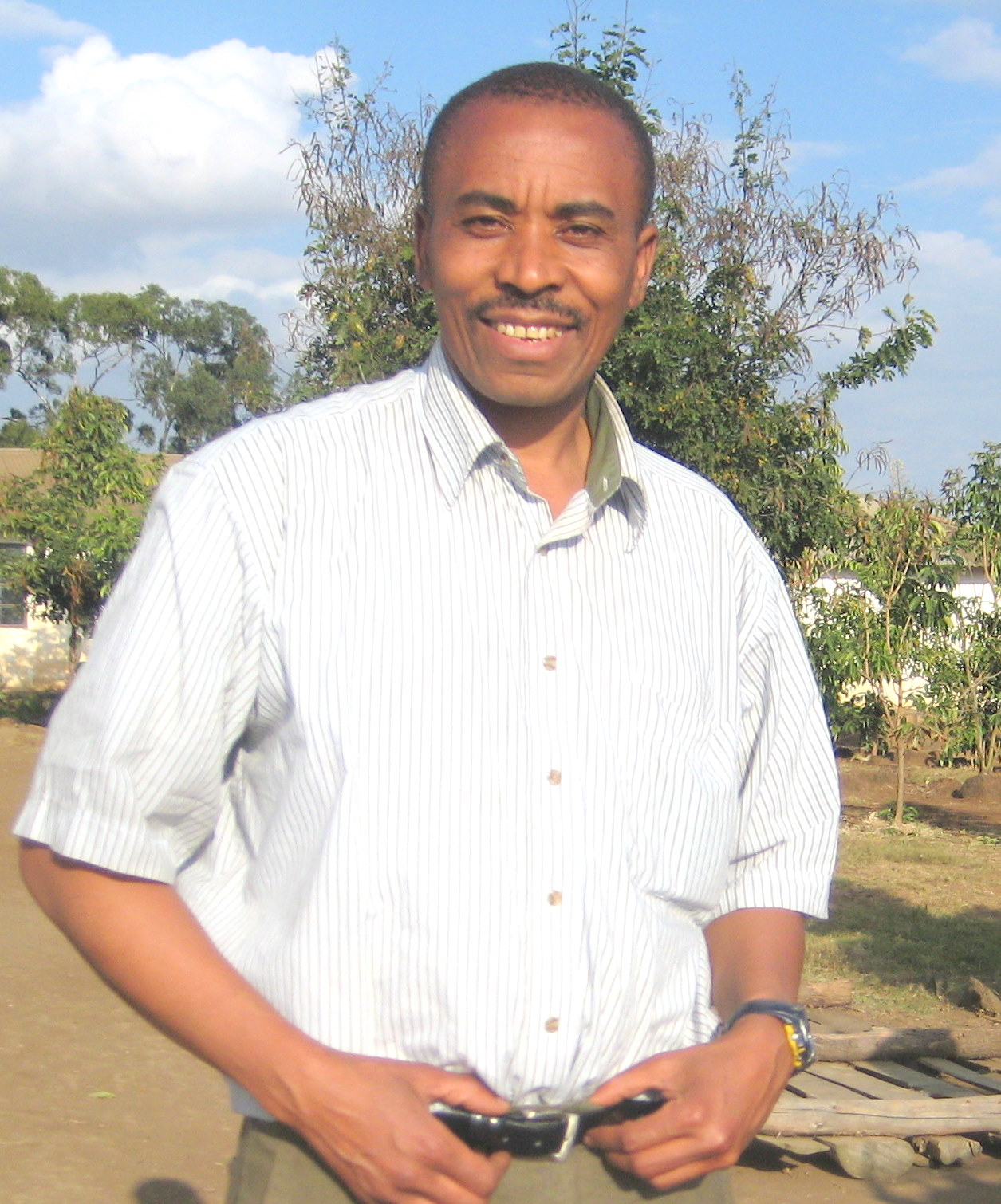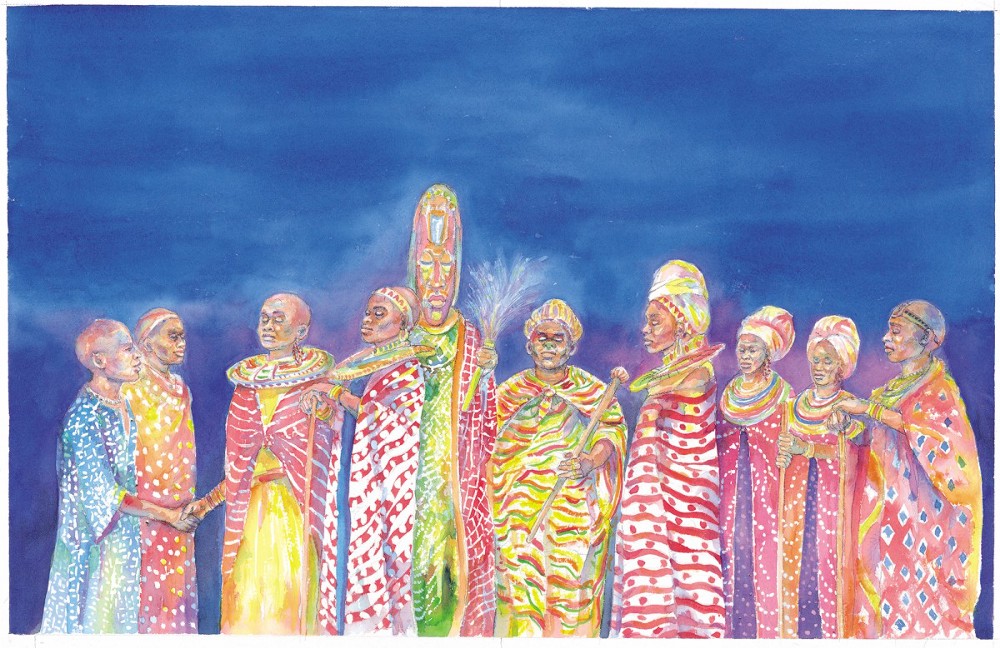
Tololwa Mollel
Tololwa Mollel ('79 MA) says that his love of books sprang out of the lack of them. As a child growing up in Tanzania, the award-winning storyteller, performer and children's picture book author relied on his school to provide reading material, and even that was scarce. Four skinny volumes of The Arabian Nights (in Swahili), read over and over again, remain vivid in his memory.
"You go from one to four, and then you read it again," he laughs. "When there are no books, you just get really hungry."
Mollel admits it took him a long time to realize that not everyone shared this hunger, which he says was driven by number of factors, including loneliness.
At a young age, Mollel was sent to live with his grandparents on their coffee farm in Arusha, Tanzania because his local school offered only grades one and two. This was later followed by a series of "terrible" boarding schools, which, according to Mollel, propelled him to "run away to the ends of the earth."
Fifty miles outside of Arusha, a kindly lady found the boy, who was then returned home, safe and sound.
Throughout these experiences, and with the supportive home life created by his family, Mollel's love of words continued to flourish, if only as a refuge. It was in his grandfather's house that he learned the Maasai term for the art of conversation, translated as "feasting on words," which aptly described the lively tradition of oral storytelling within his family.
This feast of words followed him to the University of Dar es Salaam, where he obtained a BA in theatre and literature. Serendipitously, he met UAlberta comparative literature professor - now professor emeritus - Stephen Arnold, who was on sabbatical in Dar es Salaam. Arnold convinced Mollel to come to the University of Alberta, and in 1979, Mollel received his MA in drama.
Almost 40 years later, Mollel, now a Canadian citizen, is still feasting on words. With 20 children's picture books to his name, including the award-winningThe Orphan Boy and his most recentFrom Lands of the Night, and many theatre and radio performances as both writer and actor, Mollel continues to explore the possibilities of words.

Cover image, From Lands of the Night by Tololwa Mollel, illustrations by Darrell McCalla
"I don't wait for inspiration because I can't afford to do that," he laughs. "I have to keep writing. If something doesn't work, I always have something else to move on to, and I work with a pen because I like to etch my ideas onto paper. Connect my actual hand to where I'm writing."
Initially, Mollel's stories drew from the folklore of Africa, and in his words he saw himself as a kind of ambassador, but that changed as his relationship to Canada deepened.
"I'm a Canadian writer," he says. "And that is reflected in what I write. One my projects is a story that I co-wrote [with Jestine Ware] for a children's magazine (Spider),Lipong and the Ostrich Chicks. It's a Maasai story. They looked for me because I'm Maasai-speaking and they wanted to bring some authenticity to the story. Afterward I said to [Jestine], why don't we make this story into a middle reader or chapter book, but not just centred on the folktale? Make it a contemporary story set in Edmonton? That's how my thinking has changed."
With feet in two continents and a creative output that has placed him at the top of the children's literary and theatre scenes, Mollel says that adapting his stories for Canadian audiences goes beyond writing to performance. The oral storytelling tradition in the Maasai culture he grew up in places as much value on skilful listening as it does on the spoken word.
North American audiences, however, are not so patient.
"People want you to come out with your story and get done with it," he laughs. "I try and make my stories short. When I'm crafting a story for performance, part of the challenge is discovering how many words you can get rid of and how much you can trust the listener to pick up without having to beat them over the head with words."
As part of the Canada 150 celebrations, Mollel has written a play entitled Anthem of Life for the upcomingThousand Faces Festival, based on a story by a South African Zulu poet Mazisi Kunene. "I've finished the script that we will be performing," he says. "We'll have up to 10 performers including a South Indian dancer, South Indian singer and a Chinese-descended performer, and because of their involvement, the story has evolved. It has become not just an African story, but much more. I really welcome that."
Mollel is excited to celebrate Canada's 150th birthday, pointing out that compared to most African countries - which gained their independence in the '50s and '60s - Canada is relatively old.
"One hundred and fifty, that's huge! You can look at other places in the world and you don't really have a construct where you have people from literally every corner of the earth coming into this space, who are not Indigenous to the land. They've all come in as immigrants under this tent called Canada. I feel that I'm part of it, part of the story of Canada."
For almost as long as there's been a Canada, there's been a University of Alberta. Over the next year, in honour of Canada's 150th anniversary, we're proudly celebrating the people, achievements and ideas that contributed to the making of a confederation.
